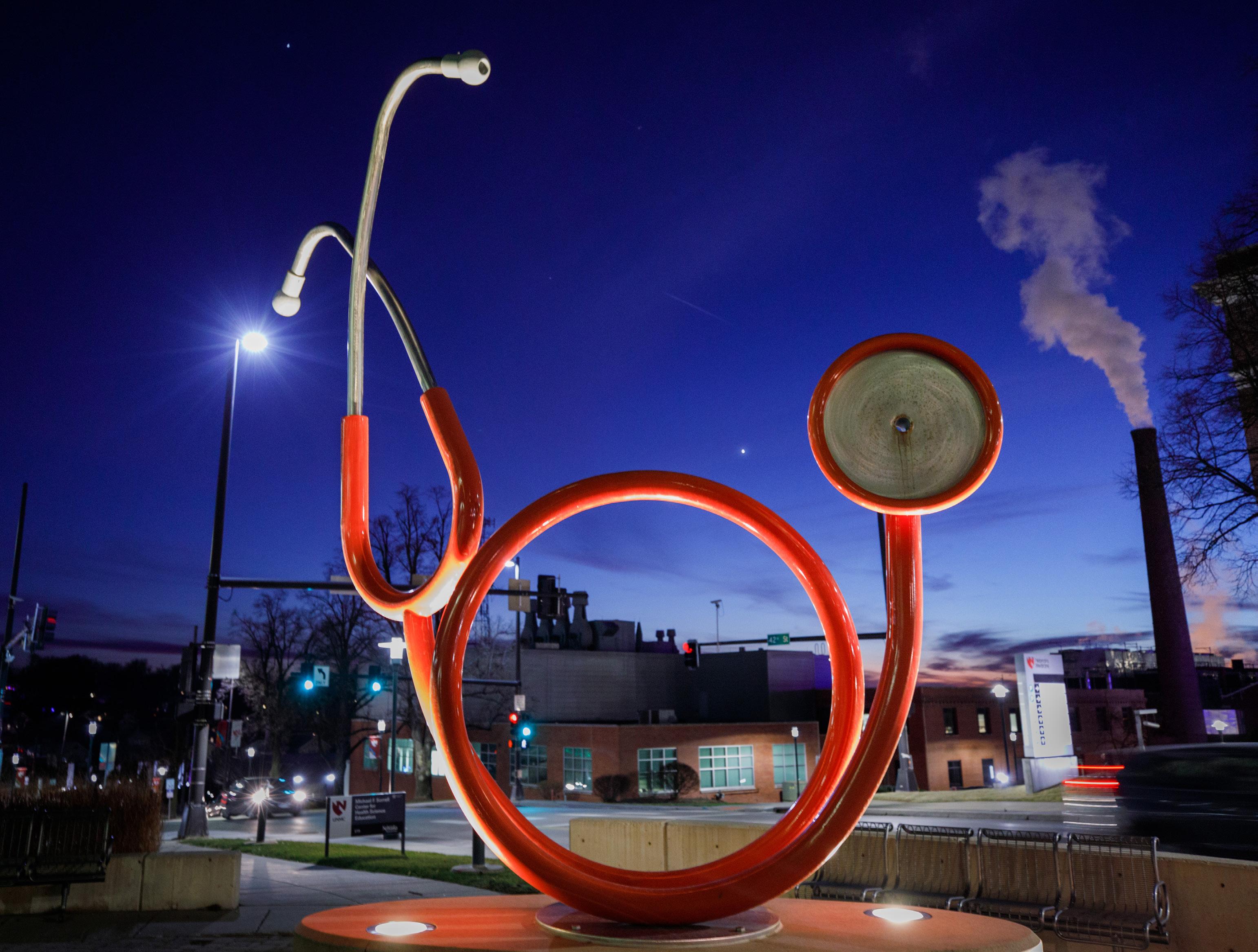
WALTER SCOTT, JR. SCHOLARSHIP PROGRAM


WALTER SCOTT, JR. SCHOLARSHIP PROGRAM
UNIVERSITY OF NEBRASKA MEDICAL CENTER
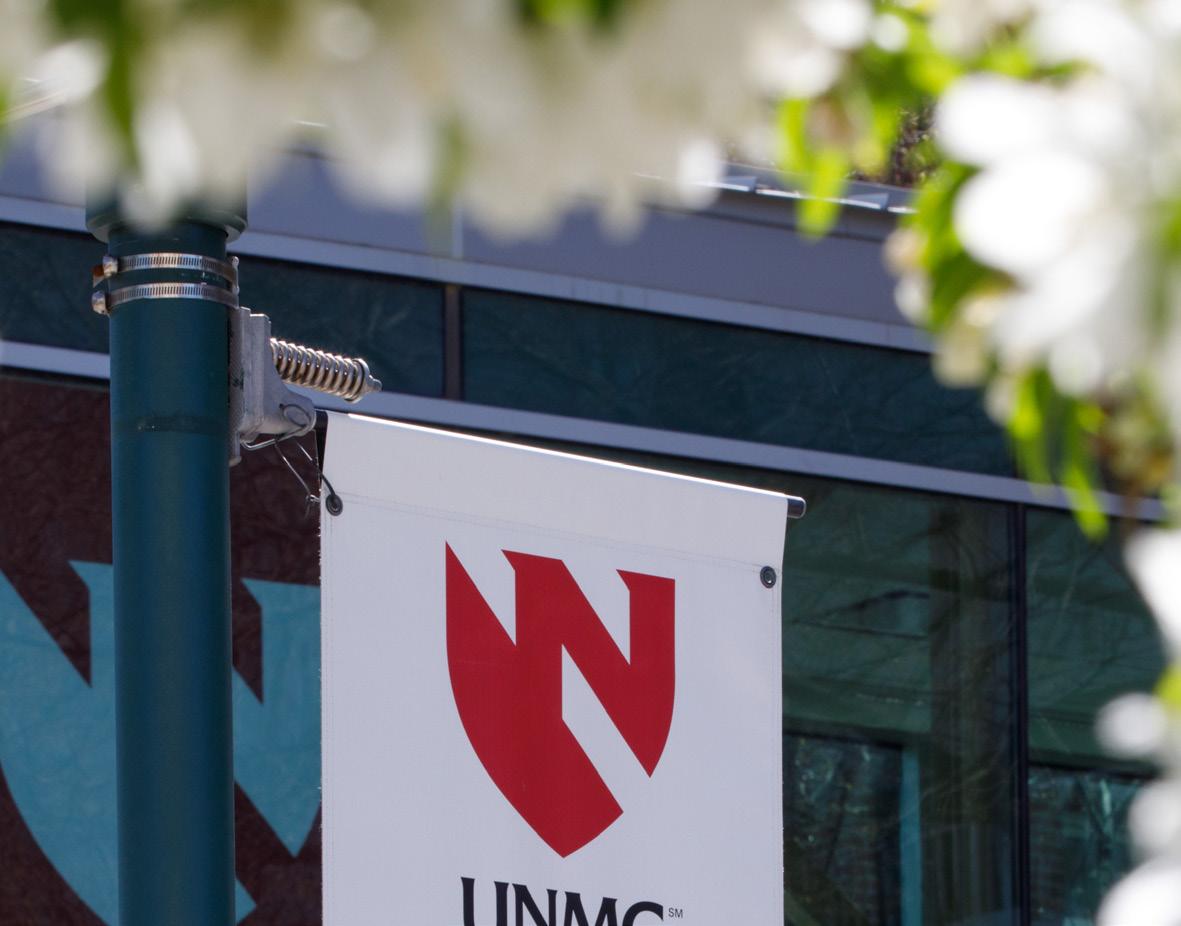
Wayne Watkins and Harnoor Dhaliwal
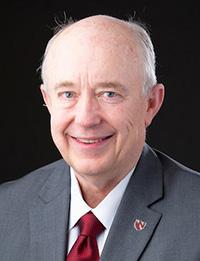
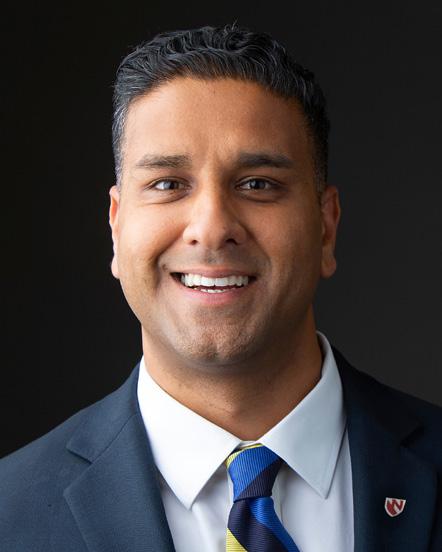
Dear Colleagues,
With immense enthusiasm and deep gratitude, we introduce the Scott Scholars Program at the University of Nebraska Medical Center—an initiative designed to shape the future of healthcare by nurturing the brightest minds in medicine. The Suzanne & Walter Scott Foundation’s generous support enables us to offer a transformative experience for our scholars, preparing them to make significant contributions to the healthcare field.
Our program emphasizes Health Design Thinking, empowering students to innovate and tackle complex healthcare challenges through a human-centered approach. Our scholars develop the empathy and creativity needed to advance patient care by fostering continuous improvement and collaboration.
In today’s interconnected world, healthcare challenges know no borders. The Global Immersion Program broadens our students’ perspectives by immersing them in diverse healthcare environments, where they gain hands-on experience and learn to deliver compassionate care across cultural contexts.
With the shift of the STEP 1 exam to pass/ fail, research has become more crucial than ever. We strongly emphasize Medical Student Research, encouraging our scholars to engage in novel projects that enhance their problem-solving skills and distinguish them for competitive residency placements.
Experiential Learning is at the heart of our program. Our scholars participate in prestigious events such as Aspen Ideas: Health, gaining invaluable insights and networking opportunities that shape their careers.
To address the multifaceted challenges of a healthcare career, our Beyond the White Coat Seminar Series equips students with essential life skills, from personal finance to mental health, ensuring they excel both professionally and personally.
Finally, our Living & Learning Community provides a collaborative living space near campus, alleviating financial burdens and fostering a supportive environment for personal and academic growth.
We extend our heartfelt thanks to the Suzanne & Walter Scott Foundation. Together, we are educating future physicians and shaping leaders who will revolutionize healthcare and improve lives worldwide.
The UNMC Scott Scholarship Program is driven by university leadership, dedicated staff, advisors, and generous support from the Suzanne & Walter Scott Foundation. This collaboration aims to provide superior education, tailored clinical and research experiences, and human development opportunities to Scott Scholars, thus fostering medical innovation and lasting impact in Nebraska and beyond.
PROGRAM LEADERSHIP
Walter Scott, Jr. Scholarship Program
Wayne Watkins, JD, MBA, BSME, Co-Executive Director
Harnoor S. Dhaliwal, Ph.D., Associate Co-Executive Director
Suzanne & Walter Scott Foundation
Laura Miller, Ph.D., Director of Education
University of Nebraska Medical Center
H. Dele Davies, M.D., MS, MHCM, Interim Chancellor
Kenneth Bayles, Ph.D., Professor & Vice Chancellor of Research
Wendy Grant, M.D., FACS, Distinguished Professor & Associate Dean of Student Affairs

Wayne & Harnoor
ADVISORY BOARD
SUZANNE & WALTER SCOTT FOUNDATION
CO-EXECUTIVE DIRECTORS CHANCELLOR
ADVISORY BOARD
Rodney Markin, M.D., Ph.D., Director of UNeTech Institute & Associate Vice Chancellor for Business Development | University of Nebraska Medical Center
Bruce Grogan, MPH | Director of Global Health Partnerships, University of Nebraska Medical Center


The Walter Scott, Jr. Scholarship Program, established in 2023 by the Suzanne & Walter Scott Foundation, is designed to transform medical students’ experiences. It challenges them to excel academically, develop innovative health design thinking skills, and cultivate leadership abilities that will ignite positive health outcomes for all Nebraskans. Each year, approximately 12 exceptional firstyear medical students are selected to become Scott Scholars, receiving an unparalleled opportunity to grow into the next generation of healthcare leaders.
Scott Scholars receive extensive financial support, including coverage for technology, books, 12-month room and board expenses, and parking fees. This comprehensive funding ensures that scholars can focus fully on their education without the burden of financial stress. Additionally, the program offers enrichment funding, enabling students to pursue unique learning opportunities that enhance their academic and professional growth.
The Scott Scholars Program is not just about academic excellence but about developing well-rounded individuals prepared to make a meaningful impact in the healthcare field. Scholars participate in a whole-person educational experience emphasizing health design thinking, wellness, and community impact. Through a carefully curated co-curriculum, scholars engage in human-centered health solutions to real-world challenges, equipping them with the skills needed to address complex healthcare issues.
All Scott Scholars reside in a pre-selected housing complex adjacent to UNMC’s campus, fostering a strong sense of community and collaboration among the cohort. This living arrangement provides convenience and financial relief and creates an environment where scholars can support and inspire each other, forging lifelong professional and personal connections.
One of the key benefits of the Scott Scholars Program is the access to regional and national research opportunities. Scholars are encouraged to engage in cutting-edge
research that aligns with their interests and career goals. This exposure to research, combined with the program’s focus on leadership development, prepares scholars to become influential figures in the healthcare industry, capable of driving innovation and improving health outcomes.

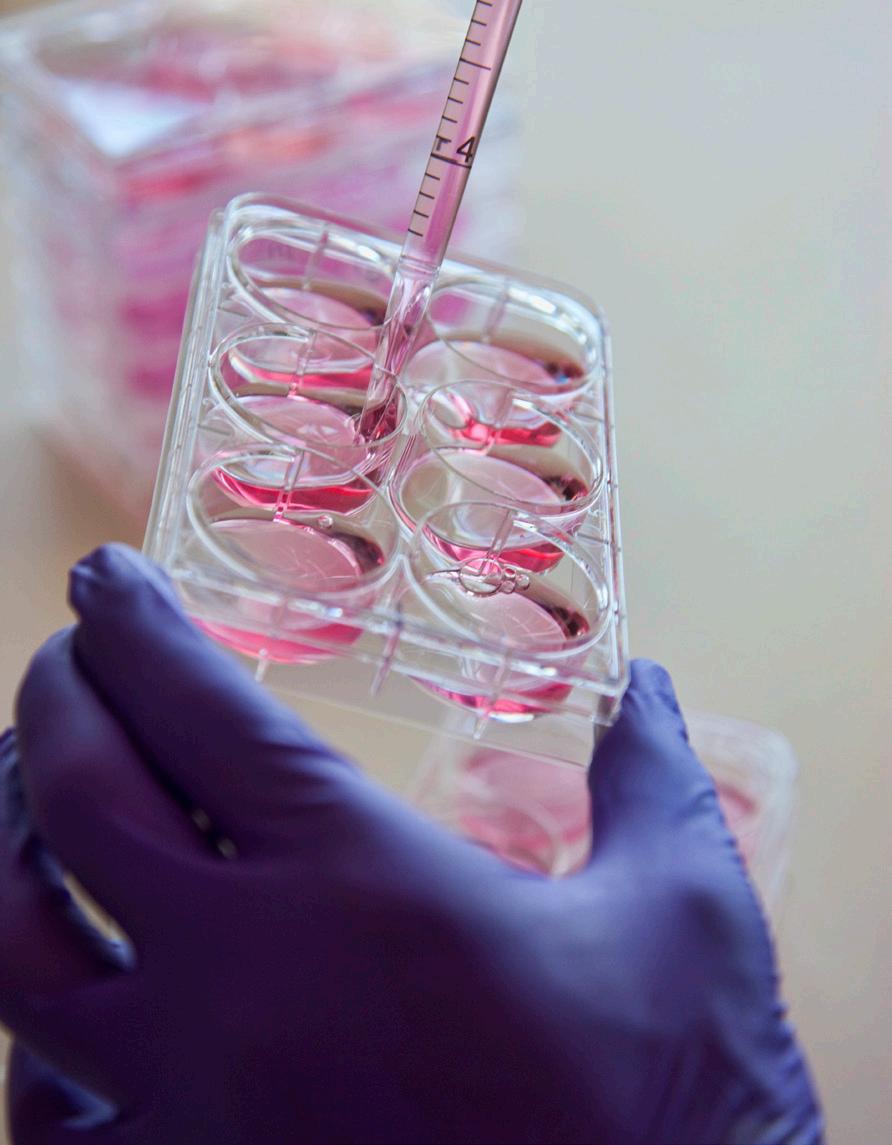
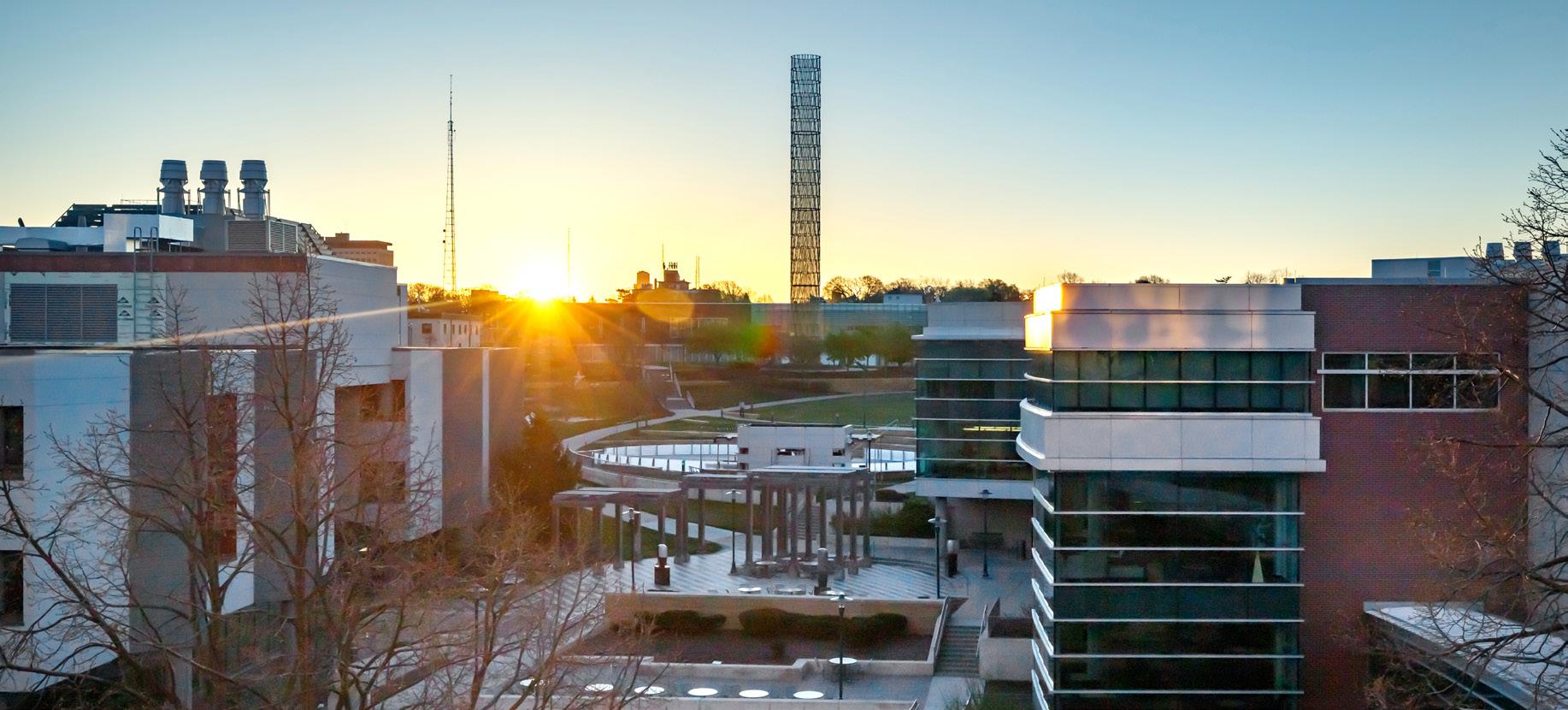
While the program currently focuses on first-year medical students, there are plans to expand the Scott Scholars Program to include students from other health-related disciplines. This expansion reflects the program’s commitment to fostering a diverse and interdisciplinary approach to healthcare education, ensuring that a broad spectrum of future healthcare professionals is equipped to lead and innovate in their respective fields.
The ultimate goal of the Scott Scholars Program is to develop physicians who are not only academically and technically proficient but also possess the social, emotional, and design thinking skills necessary to effect positive change in healthcare. Investing in these future leaders, the Walter Scott, Jr. Scholarship Program lays the foundation for a healthier and more innovative Nebraska.
f Passion for Health Design Thinking: Applicants should demonstrate a strong interest in health design thinking, with a desire to apply human-centered approaches to solving complex healthcare challenges.
f Leadership Potential: The selection process favors individuals who exhibit the potential to lead and drive positive change in healthcare, both during their time in the program and in their future careers.
f Commitment to Community Impact: Candidates should have a clear vision of how they plan to contribute to improving health outcomes for Nebraskans, reflecting the program’s goal of fostering leaders who can make a tangible difference in the local community.
The Walter Scott, Jr. Scholarship Program is designed to attract and support the most promising future healthcare leaders. The program is currently open to entering first-year medical students who have been admitted to the University of Nebraska Medical Center (UNMC). Whether you are a resident of Nebraska or an out-of-state student, you are encouraged to apply if you are passionate about making a significant impact in healthcare through innovation, leadership, and a commitment to improving health outcomes.
Eligibility Criteria:
f Admittance to UNMC: Applicants must be entering first-year medical students admitted to the University of Nebraska Medical Center.
f Residency: The program is open to both Nebraska residents and out-of-state students.
The selection process is rigorous, involving a thorough evaluation of each applicant’s academic achievements, leadership qualities, and potential impact on the healthcare field. Candidates are selected on a rolling basis until all scholarships are awarded.
The establishment of the Walter Scott, Jr. Scholarship Program at the University of Nebraska Medical Center (UNMC) is deeply rooted in the Suzanne & Walter Scott Foundation’s vision of being a catalyst for change in the communities they serve. This program represents a strategic effort to significantly impact the future of healthcare in Nebraska by investing in higher education and developing the next generation of leaders.
At its core, the Scott Scholars Program aligns with the Foundation’s commitment to advancing communities by elevating opportunities for youth and enhancing the overall quality of life in Nebraska. The healthcare challenges the state faces are complex and multifaceted, and the need for innovative, empathetic, and highly skilled physicians has never been greater. By establishing this program, the Foundation seeks to ensure that Nebraska’s communities are served by healthcare professionals who are not only technically proficient but also deeply committed to addressing the unique health needs of Nebraskans.
The Foundation has long recognized that investing in higher education is one of the most powerful ways to drive societal progress. The Scott Scholars Program is a testament to this belief, offering comprehensive support and transformative educational experiences to the most promising medical students at UNMC. By providing these future healthcare leaders with the resources, mentorship, and opportunities to excel, the program aims to produce graduates who will make significant contributions to medicine within Nebraska and beyond.

Walter Scott, Jr. was a visionary who understood that the future prosperity of communities depends on the leadership and innovation of the next generation. The Scott Scholars Program is designed to cultivate these qualities in its participants, challenging them to think critically, embrace health design thinking, and lead with empathy. Through a rigorous academic curriculum, experiential learning, and a focus on community impact, the program equips students with the skills and mindset necessary to tackle the complex healthcare challenges of the future.
The program also reflects the Foundation’s desire to engage in philanthropic partnerships with institutions that share their core values. UNMC, with its reputation for excellence in medical education and its commitment to improving health outcomes for all Nebraskans, is an ideal partner in this endeavor. Together, we are laying the foundation for a healthier, more vibrant Nebraska by nurturing the next generation of healthcare leaders.
The ultimate goal of the Scott Scholars Program is to grow future healthcare leaders who are prepared to make a profound impact on the health and well-being of Nebraskans. By fostering a new generation of physicians who are equipped with the social, emotional, and design thinking skills necessary to drive positive change, the program ensures that the legacy of Walter Scott, Jr. continues to influence and uplift communities for generations to come.
This program is more than just a scholarship; it is a strategic investment in the future of healthcare in Nebraska. It is about building a pipeline of healthcare professionals who are not only skilled in medicine but also passionate about advancing the health of their communities. Through the Scott Scholars Program, the Suzanne & Walter Scott Foundation is reinforcing their commitment to catalyzing positive change and ensuring that Nebraska remains a leader in healthcare innovation and leadership.

f Medical students will apply design thinking methodology to innovate and improve the health field, fostering a mindset of continuous improvement and collaboration, which are essential for addressing complex healthcare challenges.
f By applying this human-centered approach, they can empathize with patients and stakeholders, identify unmet needs, and generate creative solutions.
f Designed to help medical students gain international experience and broaden their perspectives on healthcare, the Global Immersion Program takes Scott Scholars to diverse global locations to study different healthcare systems, engage in clinical practice, and participate in community health initiatives.
f By working alongside local healthcare professionals and interacting with patients from different backgrounds, students experience global health issues and learn to deliver care in various settings.
f Scott Scholars develop unique research perspectives through individual exploration and laboratory experience.
f Each student is encouraged to participate in novel research through UNMC or another institution.
f Growth happens when you’re out of your comfort zone. That’s why Scott Scholars travel to and participate in national and global conferences with renown healthcare leaders.
f Signature events include Aspen Ideas: Health and the Arab Health Summit
Beyond the White Coat Seminar Series
f Created based on input from residents and physicians, this interactive and informational series answers the question, “What knowledge or skills will best prepare a future healthcare professional for challenges they will face in their career?”
f Medical students build crucial skills that will positively impact their bedside manner and ability to navigate the healthcare system. Other topics will boost their confidence in areas like personal finance, mental health and self-care, and work-life balance.
Living & Learning Community
f The Scott Scholars live in the Cosgrove Apartments, a modern living space near campus.
f Housing is provided to the students, eliminating a large financial burden and promoting collaboration and camaraderie among the cohort.

Inspired by the visionary concepts in Bon Ku’s Health Design Thinking: Creating Products and Services for Better Health, the program strongly emphasizes Health Design Thinking. This approach empowers scholars to tackle the complex challenges of modern healthcare through a human-centered methodology. By prioritizing empathy and creativity, Scott Scholars are equipped to develop innovative solutions that advance patient care and improve health outcomes.
Through four key initiatives, the Scott Scholars Program equips future healthcare professionals with the skills to navigate and improve the current healthcare system. It inspires them to envision and create the healthcare solutions of tomorrow. By embedding health design thinking into the core curriculum, the program hopes to usher in a new generation of empathetic, creative, and collaborative healthcare innovators.
Design Sprints: Fast-Paced Innovation for Real-World Challenges
Design Sprints are intensive, one-day events where student teams are tasked with solving pressing health-related challenges in collaboration with UNMC and Nebraska Medicine. These sprints are fastpaced and demand a deep engagement with design thinking principles. Through brainstorming, rapid prototyping, and iterative feedback, the scholars develop practical and impactful solutions that address the immediate needs of the healthcare community. The Design Sprints hone the students’ problem-solving abilities and cultivate their capacity for teamwork and quick, effective decision-making in a high-pressure environment.
Community-Based Projects: Addressing Health Disparities
Rooted in a commitment to social responsibility, the Scott Scholars will actively participate in communitybased projects to address health disparities. In collaboration with the Community Wellness Collaborative—a space dedicated to engaging individuals and groups and connecting them with essential health resources—teams of Scott Scholars will take on the challenge of improving access to this collaborative. They will focus on finding innovative ways to better connect the community with the necessary health support and resources. By utilizing design thinking, these teams will work to create sustainable solutions that enhance the Collaborative’s vision of providing education, training, and building career pathways for underserved populations.
Global Immersion: Tackling Health Challenges Worldwide
The Health Design Thinking curriculum is further enriched by international health and global immersion experiences. These opportunities allow scholars to confront global health challenges firsthand, applying patient-centered solutions in diverse cultural and healthcare settings. By engaging with healthcare professionals and communities worldwide, students gain a broader perspective on healthcare delivery and the unique challenges different populations face. These experiences are invaluable in shaping the scholars into globally minded healthcare leaders prepared to innovate and lead in any context.











Healthcare challenges know no borders and understanding the complexities of global health is paramount for the next generation of physicians. Nurturing well-rounded physicians extends beyond traditional medical training. The Scott Scholars Global Health Immersion Program is designed to equip future doctors with the knowledge and experiences necessary to impact health outcomes on a global scale.
Effective physicians must not only excel in clinical skills but also possess a profound understanding of the diverse cultural, economic, and social factors that influence health worldwide. With access to global health environments, students have the opportunity to broaden their perspectives and develop an empathetic commitment to improving healthcare for all.
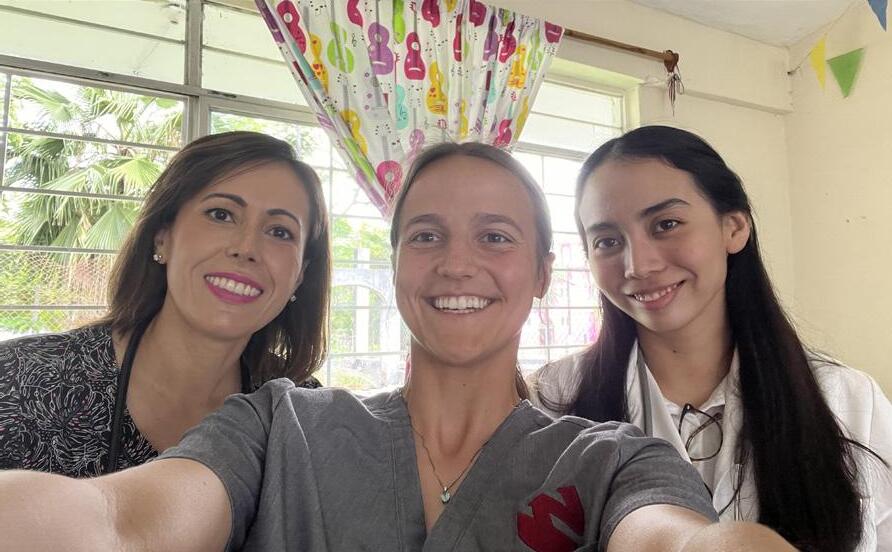
What does each Global Health Immersion Program entail?
This holistic approach prepares medical students to become adaptable, culturally competent, and innovative healthcare leaders.
Rigorous Pre-trip Coursework
f Develop an understanding of the culture and environment before traveling
f Complete training and/or extensive review of literature related to the health concerns of focus
Hands-on Field Experiences
f Engage with communities, healthcare systems, and policymakers across different countries
f Observe and/or participate in care to gain invaluable insights into the varied determinants of health and disease
Vision Screening and Medical Service
Project | March 2025

June 2024
In collaboration with Anáhuac University, Leigh Jahnke traveled to Córdoba and Xalapa, Mexico. Through this immersive experience, Leigh participated in clinical shadowing, enhanced her proficiency in Spanish, and played a proactive role in patient care during a local health fair, underscoring the program’s commitment to fostering global perspectives in medical education.
The Scott Scholars Program, in collaboration with UNMC and Anáhuac University, will facilitate a week-long vision screening and medical service initiative in Veracruz and Córdoba, Mexico. This program will provide students with handson experience in healthcare delivery, focusing on vision screening, preventive health, and chronic disease management in local communities.
Program Highlights
Community Engagement
Vision screenings and preventive health education were conducted in underserved communities.
Clinical Rotations
Students participated in rotations at various local hospitals and health centers, gaining invaluable practical experience.
Cultural Immersion
The program featured cultural activities and tours, enriching the overall learning experience.
Collaborative Learning
The partnership with Anáhuac University enabled cross-cultural exchange and professional development.


Three promising potential partnerships are on the horizon for the 2024-2025 academic year that have the potential to significantly enhance the program’s global impact.

A collaboration with this renowned international humanitarian organization is being discussed to engage students in medical missions across diverse and underserved regions. The students would work alongside seasoned healthcare professionals, addressing urgent medical needs and gaining firsthand experience with the complexities of delivering healthcare in crisis situations.
Learning outcome: Foster resilience, adaptability, and a deepened commitment to global health equity
World Health Organization (WHO)

A partnership with the WHO is under consideration, through which students could conduct policy research and development projects that address pressing global health issues. This collaboration would enable students to contribute to the
creation and implementation of policies aimed at improving health outcomes worldwide.
Learning outcome: Gain valuable insights into the intricate interplay between health policy, economics, and social determinants of health, preparing them to influence health systems at both national and international levels
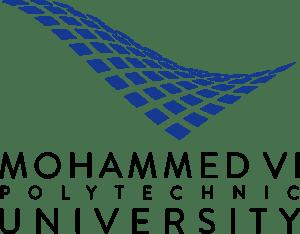
A potential partnership with Mohammed VI University would focus on supporting the MENA (Middle East and North Africa) population of migrants and addressing post-pandemic healthcare challenges. This collaboration would provide students with the opportunity to work in a region undergoing significant demographic and health transitions.
Learning outcome: Equip students with the skills and knowledge needed to address the unique healthcare needs of migrant populations and to navigate the complexities of post-pandemic healthcare delivery
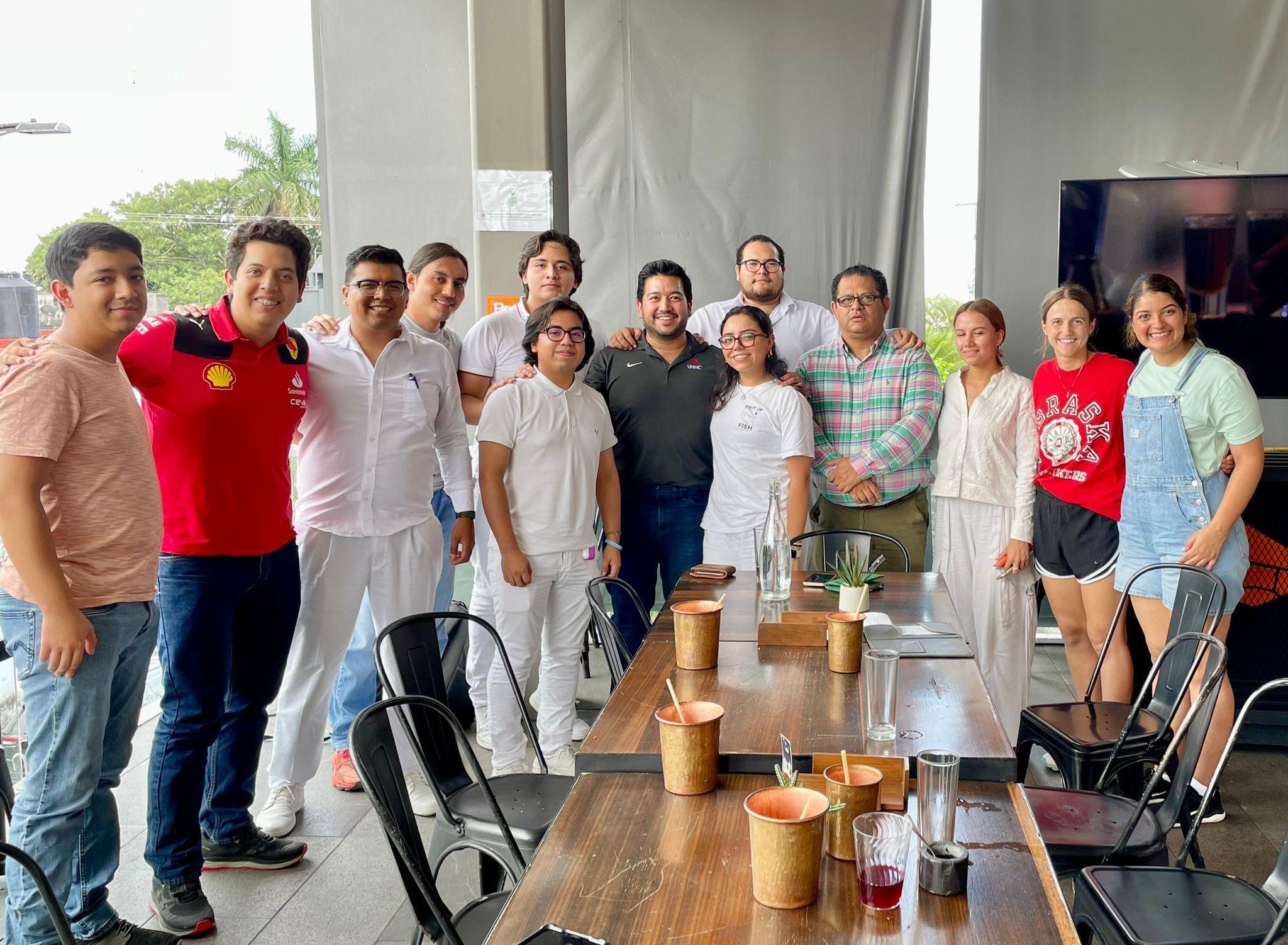
With the recent shift of STEP 1 to a pass/fail grading system, the need for Scott Scholars to distinguish themselves in other areas has never been greater. The Scott Scholars Program at UNMC recognizes this necessity and places a strong emphasis on research as a key differentiator. Research engagement enhances a student’s analytical and problem-solving skills and provides them with the credentials essential for securing positions in highly selective residency programs.
To support Scott Scholars in building a robust research portfolio, we offer several dedicated programs, including the Medical Student Summer Research Program (MSSRP) and the Scott Scholars Research Program. These initiatives are designed to provide students with the resources, mentorship, and hands-on experience necessary to excel in medical research.
Medical Student Summer Research Program (MSSRP)
The MSSRP provides rising second-year UNMC medical students with the opportunity to deepen their research expertise. This eight-week program encourages students to:
Develop Research Skills: Students work closely with faculty mentors to create and execute a research project, learning to gather information, analyze data, and apply solutions to defined problems.
Engage Full Time: Participants are expected to dedicate themselves fully to their research projects, ensuring a comprehensive learning experience.
Present Findings: Upon completion, students are encouraged to present their research at the Midwest Student Biomedical Research Forum (MSBRF), further honing their communication skills and contributing to the scientific community.
Program Details:
f Eligibility: Open to rising second-year medical students
f Funding: $3,200 stipend per student
f Mentorship: Students must secure a faculty mentor within the College of Medicine. The mentor provides laboratory space, supplies, and guidance throughout the project.
f Additionally, other funding opportunities are available through specialized programs, such as the Department of Surgery’s Summer Student Research Program of Excellence, which focuses on students interested in surgical careers, and the Howard R. and Marilyn B. McCollister Memorial Fund Rural Surgery Research Program, which pairs students with mentors at rural partner sites in Nebraska. These programs provide tailored experiences that align with students’ career aspirations.

Research Spotlight
Machine Perfusion Technologies in Liver Transplantation: A Retrospective Comparative Analysis of Early PostTransplant Outcomes
Student: Tristan Caffrey
Mentor: Shaheed Merani MD, PhD, FRCSC, FACS, Division of Transplantation, Department of Surgery
Research Overview:
Liver transplantation remains the only durable treatment for End Stage Liver Disease (ESLD), which has a dramatically higher survival rate with transplantation compared to without. Given the significant shortage of compatible livers, this study focuses on improving donor liver viability through advanced preservation methods.
Methods:
This research involves a retrospective analysis comparing three liver preservation techniques used in donation after circulatory death (DCD): Static Cold Storage (SCS), Normothermic Regional Perfusion (NRP), and Normothermic Machine Perfusion (NMP). The study examines utilization trends, perioperative data, and post-transplant outcomes between 2020 and 2023.
1. To evaluate the efficacy and outcomes associated with SCS, NMP, and NRP in liver transplantation
2. To identify perfusion characteristics that predict liver allograft function
Results: Preliminary findings suggest that NMP and NRP are associated with reduced post-operative complications and improved graft and patient survival rates compared to SCS. NMP, in particular, shows promise in enhancing liver viability, demonstrated by lower rates of allograft dysfunction and higher transplant utilization.
Student Involvement:
Tristan was involved in data collection, analysis, and interpretation of research findings. He participated in weekly meetings with his mentor for progress discussions and gained hands-on clinical exposure related to transplant surgery.
Significance: This research contributes to the optimization of liver transplant outcomes and supports the adoption of more effective organ preservation techniques, potentially reducing mortality rates associated with liver disease waitlists.
Tristan plans to present his findings at a research conference, contributing to broader discussions on improving transplantation methodologies.
Scott Scholars Research Program
The Scott Scholars Research Program builds on the foundation laid by the Medical Student Summer Research Program (MSSRP) by offering even broader and more diverse research opportunities tailored to the ambitious student eager to make significant contributions to global medical research.
Program Features:
National Research Mentorship: Unlike the MSSRP, which is limited to mentors within the University of Nebraska Medical Center, Scott Scholars are encouraged to seek out research mentors from any national or global research university. This global network not only diversifies the educational experience but also enhances the breadth and depth of research opportunities available to our students.
Access to UNMC Research Cores: Scott Scholars have the privilege of accessing UNMC’s extensive research core facilities, which provide hands-on training in state-ofthe-art research techniques. Each research core offers a short course designed to introduce students to a specific technology, such as advanced microscopy, next-generation sequencing, flow cytometry, mass spectrometry, and mouse genome engineering.
Certification and Badging System: Upon completing these courses, students earn badges that certify their proficiency in these advanced technologies. These badges can be “stacked,” allowing students to demonstrate a broad set of skills across various technologies. This not only enhances their CVs but also showcases their commitment to a career in scientific research.
Career Pathways Exposure: The program is designed to build skills and expose students to various career paths within the scientific community. This exposure is expected to inspire and inform their future career choices, reinforcing the program’s role in shaping the next generation of scientific leaders.
Program Details:
f Eligibility: Open to rising second, third, and fourth-year medical students
f Stipend: Participants receive a stipend of $3,200, consistent with the MSSRP, to support them financially during their research period.
f Enhanced Educational Outcomes: The comprehensive nature of the Scott Scholars Research Program ensures that participants leave with a more profound understanding of medical research, equipped with practical skills that are highly valued in the research community.
f Community Contribution: By connecting with a global network of researchers and engaging in cutting-edge projects, Scott Scholars contribute to advancing medical research that can have a wide-reaching impact on global health.
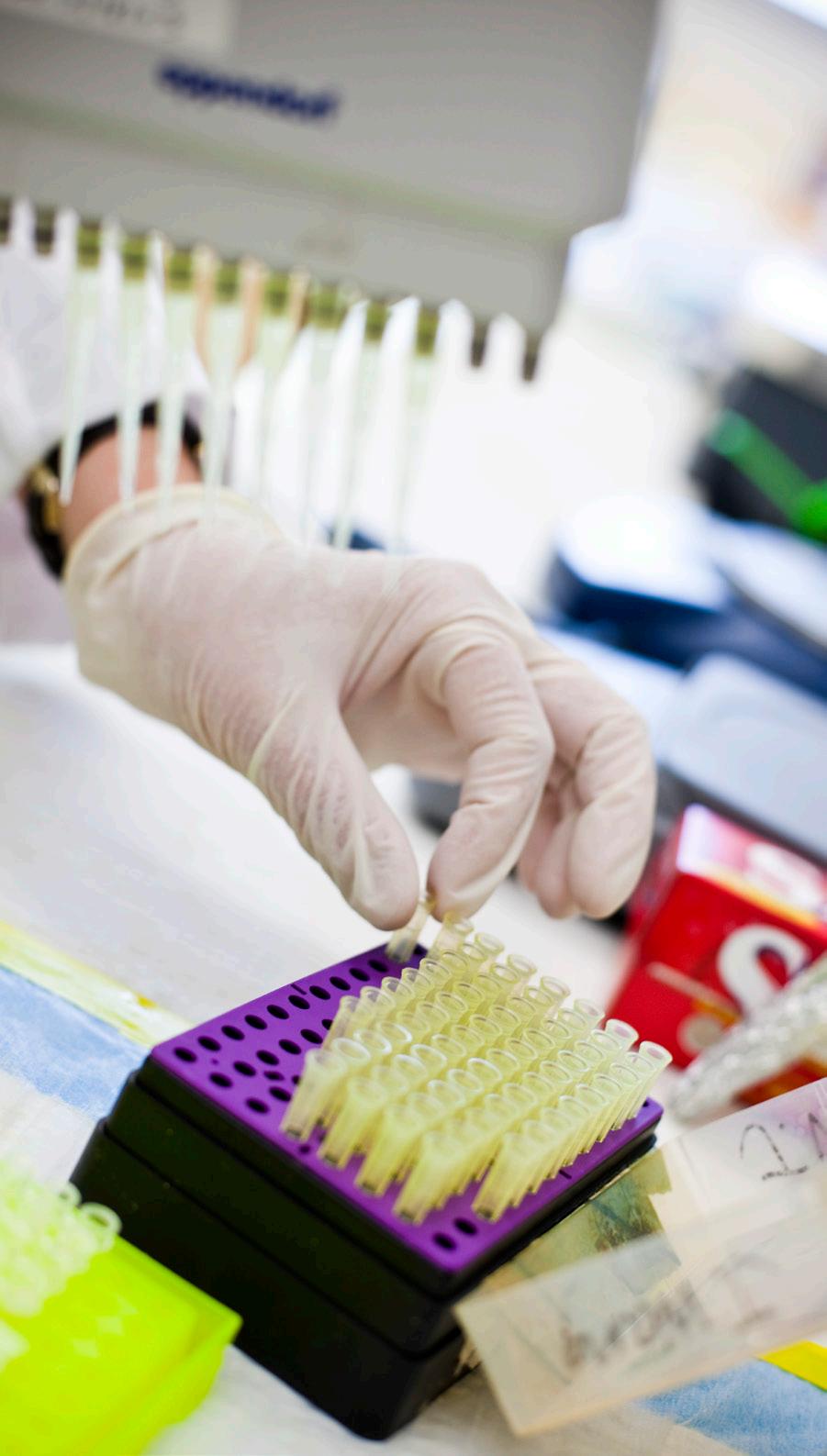
Palliative Care Intervention (POISE) in Metastatic Non-small Cell Lung Cancer
Student: Heather Richard
Mentor: Dr. Petrillo, Massachusetts General Hospital
Project Overview:
This project focused on a clinical trial designed to enhance the quality of life for patients with metastatic non-small cell lung cancer through a targeted palliative care intervention. Heather was tasked with analyzing qualitative data from the trial’s early stages, specifically examining patient feedback and outcomes.
Research Activities
Data Analysis: Heather reviewed and analyzed interviews and questionnaires from the stakeholder and pilot phases to identify themes and evaluate the intervention’s effectiveness.
Manuscript Preparation: Heather contributed to a manuscript that outlined the analytical findings, aiming for publication.
Timeline and Location:
Duration: June 1 - August 16
Setting: Virtual and in-person work mid-project at Massachusetts General Hospital.
Hours: Approximately 40 hours per week.
Purpose and Importance
Educational Enhancement: Integrated
Heather’s interests in oncology and medical humanities, offering insights into palliative care’s role in patient management.
Professional Development: Provided valuable learning experience at prestigious institutions, supplemented by shadowing and seminar participation.
Career Aspiration: Supported Heather’s residency ambitions in Boston, with the ultimate goal of enhancing healthcare in Nebraska.
Ongoing Research Projects: Involvement in genetics, public health, and gastrointestinal research, enriching her research portfolio and medical knowledge.

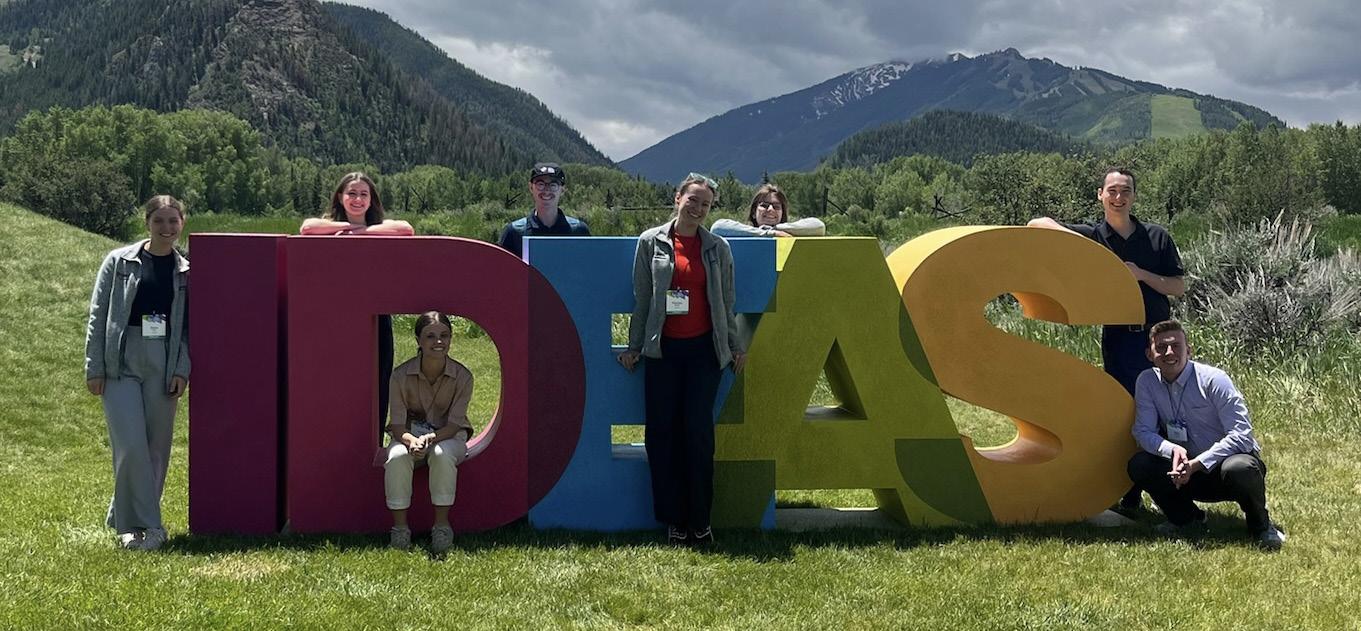
Coined, “Not Your Average Health Conference” by the Aspen Institute, Aspen Ideas: Health brings together a diverse group of experts from healthcare, public health, policy, climate, technology, business, and the arts to tackle pressing health challenges and opportunities. The goal is to inspire and accelerate innovative solutions for better health for all, shaping the future of health, medicine, and science. All 12 UNMC Scott Scholars traveled to the Aspen Institute’s scenic Colorado campus for the 2024 experience, where they were immersed in deep conversation and had a front-row seat as the latest innovations were unveiled. Highlights included sessions on artificial intelligence, climate change, the intersection of science and faith, and dismantling racism in healthcare.
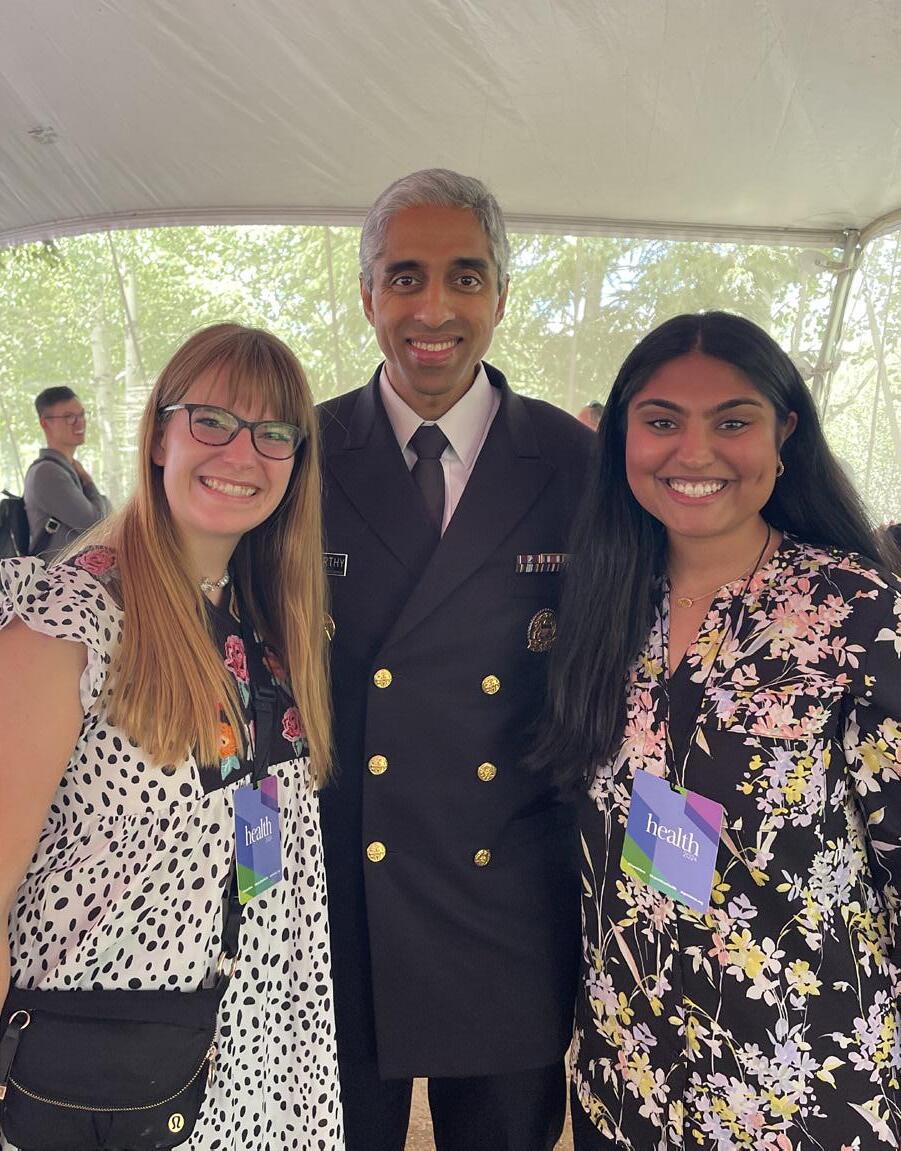
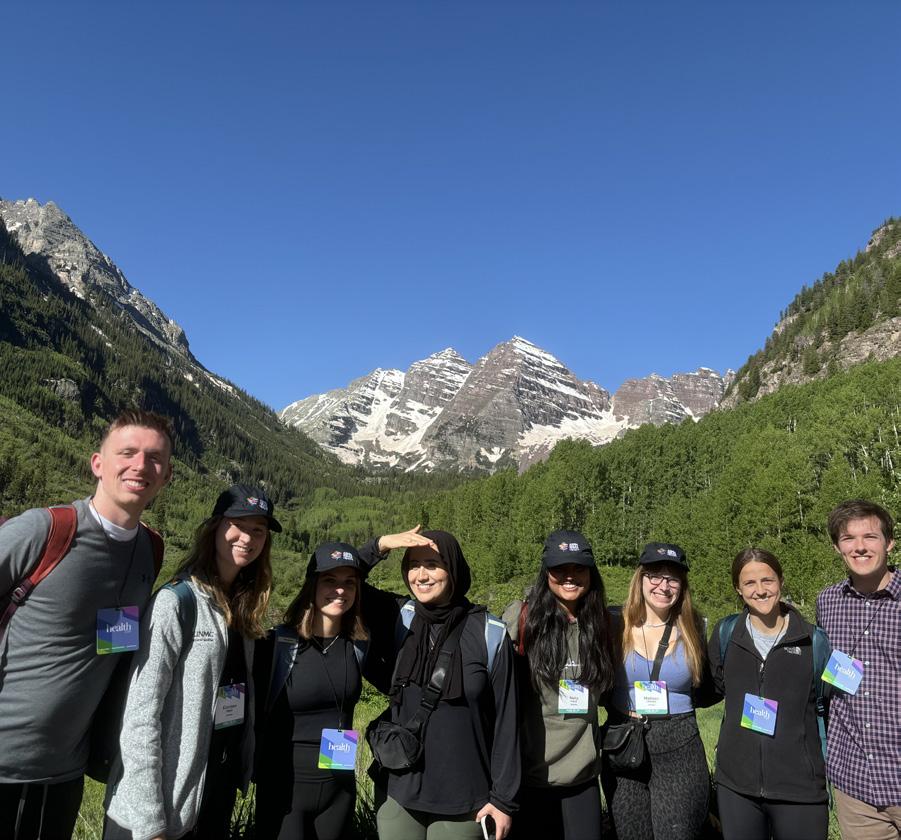
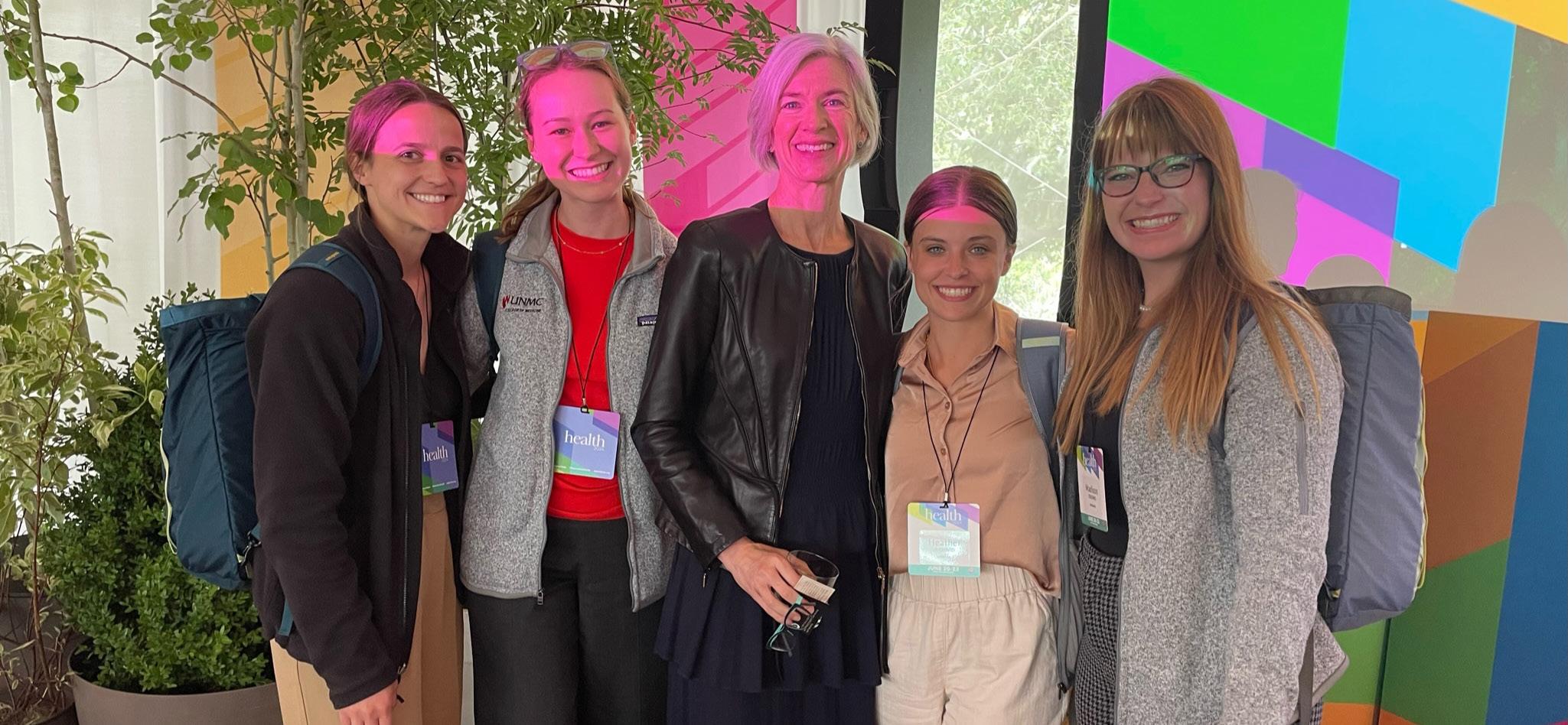
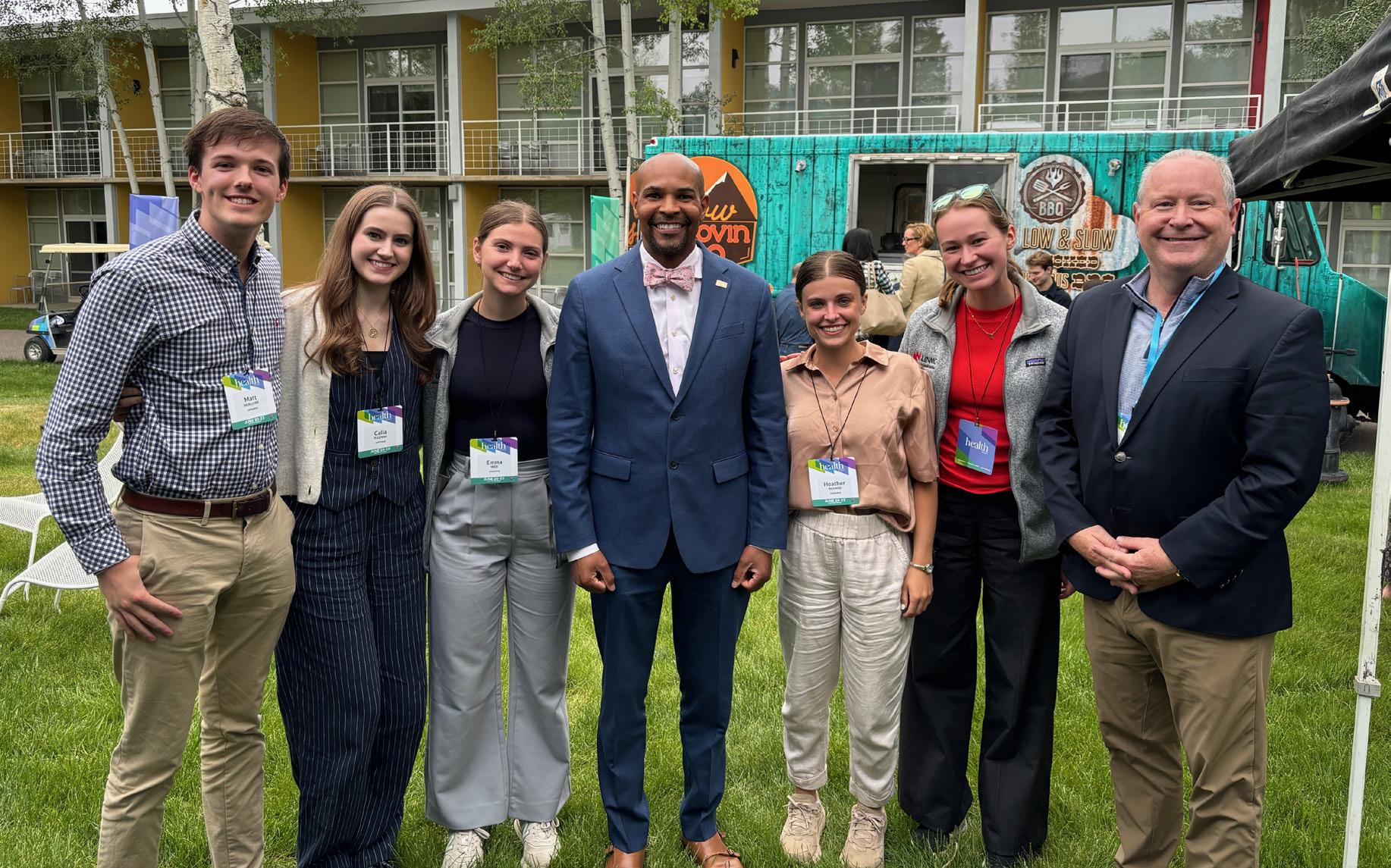
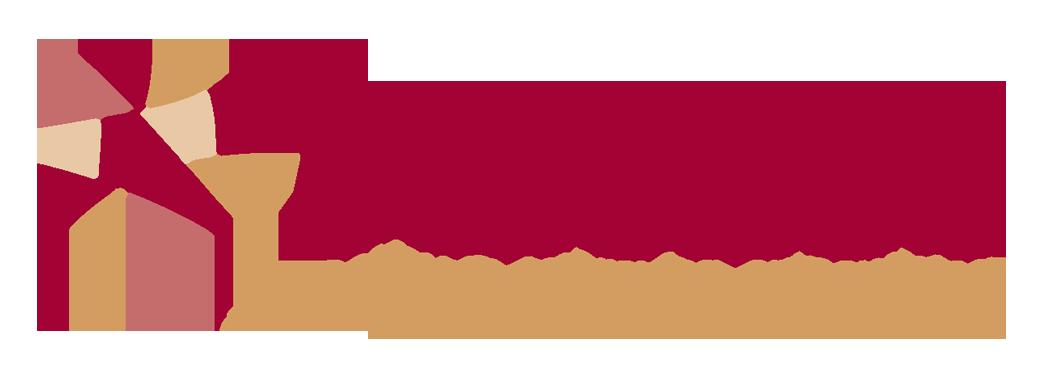
As part of the Scott Scholars Program’s commitment to experiential learning, students can participate in the Access Arab American Health Summit. This prestigious event brings together global health professionals, policymakers, and researchers to address health disparities within the Arab and immigrant communities— one of the fastest-growing populations in the United States and Nebraska.
Participation in this summit provides Scott Scholars with invaluable experiences. Students directly contribute to advancing health equity and cultural competence by submitting proposals and engaging in discussions. The summit is a platform for scholars to present research, share innovative solutions, and build networks with leading experts.
The growing Middle Eastern and North African (MENA) population is critical to this experience. Scholars gain insights into how social and cultural factors influence health outcomes, knowledge that is crucial for future healthcare leaders. Engaging with this rapidly expanding demographic allows students to understand better and address the unique healthcare needs of these communities.
Moreover, the opportunity to submit proposals and present at the summit enhances students’ research skills and professional visibility, helping them stand out in their future medical careers. By participating in this summit, Scott Scholars are broadening their horizons and contributing to meaningful changes in global health, aligning with the program’s mission to develop well-rounded, socially conscious healthcare leaders.
The Walter Scott, Jr. Scholarship Program emphasizes the importance of a shared living and learning environment, recognizing its profound impact on high-achieving students’ academic and personal growth. Evidence from similar undergraduate programs has shown that students living together in a collaborative environment tend to achieve better academic results and build stronger community connections. The Scott Scholars Program at the University of Nebraska Medical Center (UNMC) continues this tradition, providing an enriched living experience designed to foster educational and personal development.
The Cosgrove Apartments: A Premier Living Space
Scott Scholars are housed at The Cosgrove, a modern apartment community in Omaha’s vibrant Blackstone/Midtown area, just a block from the UNMC campus. The Cosgrove offers a range of high-end amenities, including fully furnished studios and one, and two-bedroom apartments. These units feature luxurious finishes
such as granite countertops, stainless steel appliances, and in-home washers and dryers, providing a comfortable and convenient living environment for future medical leaders. The community also boasts a variety of shared amenities, including a fitness center with Peloton bikes, outdoor movie areas, and multiple gathering spaces designed to encourage social interaction and collaboration among residents.
Dedicated Scott Scholar Housing at UNMC: A Vision for the Future
In addition to the accommodations at The Cosgrove, the UNMC campus is expanding its housing options with a newly designed six-story student housing project. This development will feature an entire floor dedicated exclusively to Scott Scholars, ensuring that these students have access to a unique living experience tailored to their needs. This floor will include dedicated collaborative, working, and study spaces, fostering an environment that supports individual academic pursuits and group learning. These facilities enhance the living and learning experience, enabling Scott Scholars to thrive academically while building strong professional and personal networks.
Integrating these high-quality living spaces into the Scott Scholars Program, the University of Nebraska Medical
Center and the Suzanne & Walter Scott Foundation create an environment where future healthcare leaders can flourish. The combination of rigorous academic challenges with a supportive, collaborative living environment ensures that Scott Scholars are well-prepared to contribute significantly to healthcare in Nebraska and beyond. This holistic approach supports academic success and encourages the development of essential leadership skills, positioning the Scott Scholars to become influential figures in medicine.

Beginning in Fall 2024, the UNMC Scott Scholars will participate in Behind the White Coat, an exclusive, curated seminar series. Created based on input from residents and physicians, this interactive and informational series answers the question, “What knowledge or skills will best prepare a future healthcare professional for challenges they will face in their career?”
August September October November December
Financial Literacy for Physicians Leadership & Management Skills Health Policy & Advocacy
f Managing personal finances
f Understanding healthcare economics
f Negotiating contracts
Investment strategies
f Leadership styles
f Team management
f Conflict resolution
f Organizational behavior

Students will attend one seminar per month, each led by a subject matter expert and providing tools, resources, and ideas for more self-exploration.
Communication Skills Wellness & Resilience
f Understanding healthcare policies
f Advocacy strategies
f The physician’s role in policymaking
f Effective patient communication
f Delivering bad news
f Cultural competence
f Public speaking
f Burnout prevention
f Stress management
f Work-life balance
f Mental health awareness
Medical Ethics & Legal Considerations Technology & Innovation in Medicine
Global Health Perspectives Entrepreneurship in Healthcare Interdisciplinary Collaboration
f Ethical dilemmas in medicine
f Malpractice
f Patient rights
f Legal responsibilities
f Emerging medical technologies
f Digital health
f Telemedicine
f Innovation in patient care
f Global health challenges
f International medical practices
f Opportunities for global medical missions
f Starting a medical practice
f Healthcare startups
f Innovation in medical services
f Working effectively with other healthcare professionals
f Interdisciplinary team dynamics
f Collaborative care models
Facilitators
f Financial advisors
f Healthcare economists
f Successful physician entrepreneurs
f Experienced healthcare executives
f Leadership coaches
f Senior physicians with administrative roles
f Health policy experts
f Lobbyists
f Physicians involved in policy advocacy
f Communication specialists
f Seasoned physicians known for their patient interactions
f Medical educators
f Psychologists
f Wellness coaches
f Physicians who have overcome burnout
Facilitators
f Medical ethicists
f Healthcare attorneys
f Risk management experts
f Medical technologists
f Innovators in healthcare startups
f Medical patent attorneys
f Global health experts
f Physicians with international experience
f Public health professionals
f Physician
entrepreneurs
f Venture capitalists in healthcare
f Startup mentors
f Experienced multidisciplinary team leaders
f Hospital administrators
f Collaborative care specialists
The inaugural cohort of UNMC Scott Scholars boasts 12 STEM-minded medical students with undergraduate degrees from across the country and countless accolades. As they train to become physicians and researchers, these scholars will also build skills in cultural competency, communication, and human-centered innovation and problem-solving.
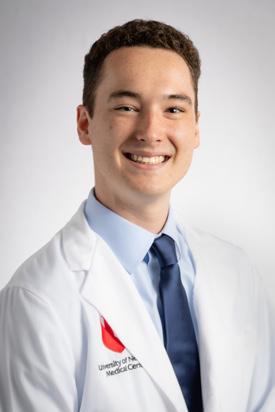
Tristan Caffrey | Omaha, Nebraska
Tristan graduated from Iowa State University in 2024 with a Bachelor of Science in Biology with a minor in Psychology. As an undergraduate, he was heavily involved in student leadership, neurological and pancreatic cancer research, student wellness organizations, and his fraternity. Tristan was inspired to pursue a career in medicine through the mentorship he received while working in the emergency department throughout the COVID-19 pandemic. He witnessed the care physicians provided during those challenging times and wishes to model the same care and compassion to his patients. His research efforts are focused on evaluating and improving procedural care to be cost-effective and easily accessible for all patients. His research work for the summer of 2024 surrounded the role of perfusion technologies in solid organ transplantation. Tristan is aiming for a career in direct patient care within his community and hopes to educate and develop future generations of physicians.

Ryan Chapman Omaha, Nebraska
Ryan was a Walter Scott, Jr. Scholarship recipient as an undergraduate at the University of Nebraska at Omaha (UNO).
He graduated with a Bachelor of Science in Bioinformatics in 2022. While at UNO, he conducted research in Dr. Paul Davis’s laboratory, participated in Stanford’s University Innovation Fellows program, and volunteered at the Omaha VA Medical Center. Before entering medical school, Ryan spent a year conducting viral DNA sequencing research under Dr. Mike Wiley at UNMC. Ryan was drawn to medicine through volunteering and shadowing at the Omaha VA Medical Center, where he saw physicians combining their scientific knowledge with compassion and empathy to care for veterans. Ryan is interested in research that integrates novel diagnostic tools, data analysis, and artificial intelligence into clinical decision-making. He is also interested in adapting and employing this technology in isolated and lower socioeconomic areas. Ryan spent the summer of 2024 evaluating a multiplex PCR panel for pneumonia diagnosis in patients with solid organ and bone marrow transplants and working with UNMC’s Center for Intelligent Healthcare to develop a clinical decision support platform for hypertension incorporating artificial intelligence. Ryan is interested in practicing and researching within the specialties of internal medicine, infectious disease, and cardiology. Above all, Ryan aspires to be an effective, caring, and empathetic physician.
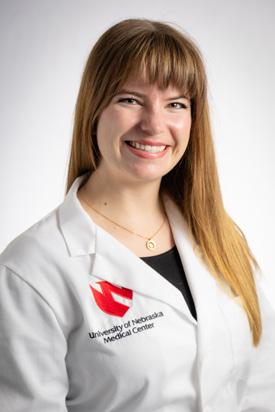
Madison graduated from Augustana University with a Bachelor of Science in biology. She was a member of the Civitas Honor Society and Vice President of the Tri-Beta Biological Honor Society. Madison was motivated to pursue medicine because of her interest in various biology topics and her experience working at a long-term care and rehab facility during the pandemic where she provided care and comfort to patients with difficult diagnoses. Madison’s research interests include multiple sclerosis, movement disorders, weight bias in medicine, GLP-1 agonists, social determinants of health, and skin cancer. During the summer of 2024, Madison collaborated with researchers at Harvard and Dartmouth to compare the use of telehealth among several multiple sclerosis care centers before and during the COVID-19 pandemic. She also worked with UNMC Dermatology on a systematic review that examined the relationship between BRCA2 breast cancer mutations and certain skin cancers. Madison is interested in multiple residency programs, including neurology, psychiatry, dermatology, and internal medicine.

Nour attended the University of Nebraska at Omaha as a Walter Scott, Jr. Scholar, majoring in neuroscience and minoring in chemistry. She was inspired to pursue medicine after growing up in Libya and witnessing the difficulties of living in a medically underserved community. Her subsequent experiences in the U.S. further deepened her commitment to serving and healing others after observing healthcare disparities when volunteering in marginalized communities. Nour is interested in public health research to improve healthcare disparities for marginalized communities. Nour’s research project for the summer of 2024 investigated the acceptability and feasibility of recently FDA-approved self-swab HPV screening as an alternative to traditional cervical cancer screenings to improve testing rates among marginalized groups such as refugee and immigrant populations. Nour is also working with the UNMC Diversity, Equity, and Inclusion Office to support students of diverse backgrounds in their transition to medical school. She aspires to be a compassionate and culturally competent physician, dedicated to providing patient-centered care and addressing the needs of diverse populations. Nour is currently interested in pursuing a career in primary care but also has interests in psychiatry and gastroenterology.
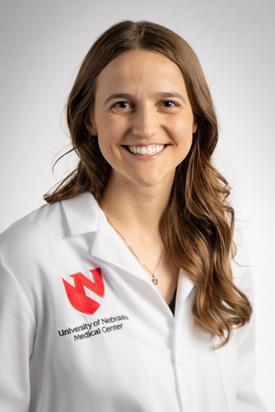
Leigh graduated from the University of Nebraska-Lincoln with degrees in biology and Spanish and minors in biochemistry and mathematics. Upon graduating in 2022, she received a Fulbright grant to teach English in Spain for a year. Leigh was drawn to pursue medicine after witnessing healthcare disparities in underrepresented populations in her own hometown. She is also motivated by her interest in the problem-solving aspects of medicine. Leigh is interested in nephrology research and examining and addressing healthcare inequities. During the summer of 2024, Leigh conducted research on diabetes disparities within the Karen and Q’anjob’al populations, and in partnership with the UNMC Scott Scholars program, she traveled to Córdoba, Mexico to learn about their public health system. In the future, Leigh hopes to practice medicine in underserved areas, with a particular focus on serving Hispanic populations.
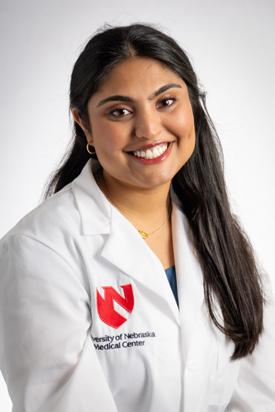
Neha graduated from the University of Tulsa with a degree in biochemistry and minors in psychology, philosophy, and religion. There she received the Jess Chouteau Outstanding Senior Award, the Outstanding Junior in Psychology Award, and was honored as a Presidential Scholar. Neha had always been fascinated by science and the human body, but she was determined to pursue a career in medicine after her father had consistently disappointing experiences at multiple medical appointments due to the doctors’ lack of understanding and empathy toward his culture. Neha hopes to become a culturally sensitive doctor who prioritizes understanding and addressing the unique needs of each patient, ensuring they feel heard, supported, and cared for. Neha’s research interests focus on developing culturally sensitive methods to enhance general screening and preventative measures for immigrant and refugee populations. During the summer of 2024, Neha researched the acceptability and feasibility of self-administered pap smears within marginalized communities. She also helped to create educational videos about diabetes, which will be translated into multiple languages for use by patients in clinical settings. Neha aspires to become an internist and wants to increase public understanding of complex diseases, such as diabetes, by developing simple and accessible educational materials.
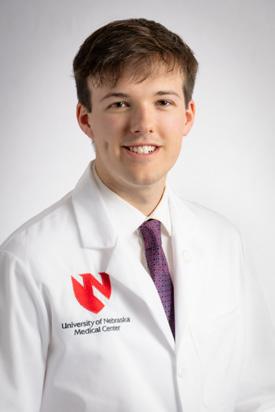
Matt attended Yale University where he graduated with degrees in neuroscience and computer science. Matt has sought to pursue medicine since elementary school. He believes medicine is a unique profession that affords the opportunity to dramatically benefit a stranger’s life every day. Inspired by a love of learning and a commitment to service, he is deeply grateful to have the chance to become a future doctor and researcher. Matt’s research focus is using machine learning techniques to assist with disease detection and monitoring, mainly in the context of cancer. Matt hopes to become an internal medicine physician and researcher, possibly specializing in oncology or nephrology. Matt is currently working with the University of Southern California’s Radiomics Lab to develop predictive models for cancer based on liquid biopsy and medical imaging data. He is also working on projects in health access and education with mentors at UNMC.
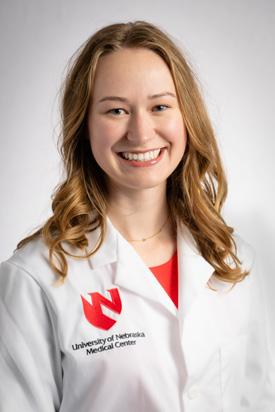
Kiersten graduated as an honors student and a Chancellor’s Scholar from the University of Nebraska Lincoln with a Bachelor of Science in Nutrition Science with minors in Mathematics, Biochemistry, Psychology, and Humanities in Medicine. Kiersten’s mom, a high school science teacher, exposed Kiersten to human physiology and anatomy from an early age. Kiersten also spent time in the hospital supporting her sister, who underwent various neck surgeries and observed how healthcare professionals cared for her sister and admired the physicians who diagnosed and treated her. As Kiersten continued school, she found new ways to increase her exposure to medicine, including getting involved with Nebraska’s chapter of Health Occupations Students of America (HOSA). Kiersten completed rotations through Pediatric Summer Academy at Children’s Hospital within the pediatric intensive care unit (ICU), the Hematology and Oncology Department, and learned GI procedures in the summer of 2024. She also participated in UNMC’s MSSRP program through the Department of Epidemiology where she completed pediatric cancer research on soft tissue malignancies and early mortality risk factors. Kiersten is interested in pediatric medicine and its subspecialties, including oncology and critical care. She hopes to practice in Nebraska following her residency and fellowship and aspires to later serve in a leadership role, such as Director of Physician Affairs.
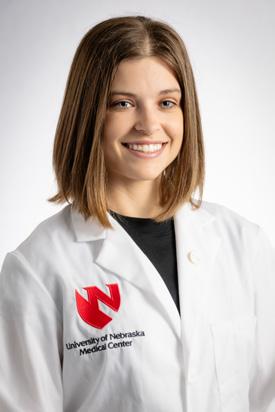
Heather graduated from the University of Nebraska at Omaha, where she was a Walter Scott Jr. Scott Scholar, with a Bachelor of Science in biology with minors in medical humanities and chemistry. She served in leadership roles in the Scott Scholars Program and health-related organizations, co-founded a non-profit program for advocacy for girls in STEM, and published cancer research. Heather’s pursuit of medicine is rooted in a culmination of a love for science, service, and shaping the human experience. The UNMC High School Alliance Program initially launched her exploration of the science and research behind medicine, and her interactions with patients later solidified her decision to pursue medicine, with a goal of becoming a leader in humanistic, patient-centered care. Heather’s research interests lie in adult and pediatric oncology. In summer 2024, Heather worked on a clinical trial for patients with metastatic lung cancer at Massachusetts General Hospital, focusing on palliative care interventions to improve quality of life. She also participated in the UNMC Pediatric Summer Academy and led two research projects; one focused on diagnosis of metabolic disorders in pediatrics and the other focused on the increased incidence of early-onset colorectal cancer. She plans to pursue pediatric residency followed by fellowships in hematology, oncology, and palliative care.
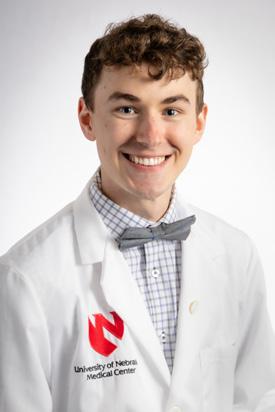
John Rogers graduated from Creighton University with degrees in biochemistry and classical languages. He was inducted into Alpha Sigma Nu, Phi Beta Kappa, and Eta Sigma Phi. John was drawn to medicine after working at a healthcare facility in his hometown. He found personal fulfillment in serving his patients and providing medical care to others. John is interested in medical education research and surgical training techniques. During the summer of 2024, John collaborated with UNMC’s iEXCEL to design 3D models of anatomical structures to aid student learning and enhance medical curriculum at the university. These 3D models will afford students the opportunity to use augmented reality and other advanced technologies to visualize human anatomy, emphasizing the increasing importance of integrating these technologies into medical curricula. Although undecided on a specialty, John hopes to enter academic medicine where he can teach and practice medicine at a university hospital.
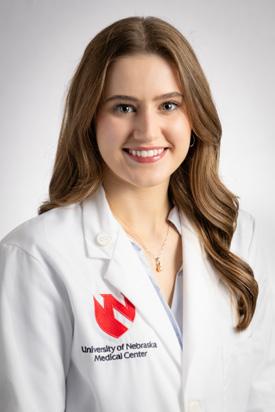
Calla attended the University of Notre Dame, where she double majored in biological sciences and anthropology. At Notre Dame, she was a member of the Glynn Family Honors Program and Phi Beta Kappa Society, served as the president of the Notre Dame Dance Company, conducted lymphoma research at MD Anderson Cancer Center, and received the Mr. and Mrs. Frank McDonald Undergraduate Research Award for her mosquito vision research. Calla has always been passionate about science and becoming a physician, especially after her experiences volunteering in medical settings, working as a phlebotomist, and witnessing her parents’ careers, both of whom are alumni of the UNMC College of Medicine. Calla is interested in dermatology, dermatopathology, and oncology research with a primary interest in skin cancer, especially melanoma. During the summer of 2024, Calla conducted research with the Department of Dermatology and Precision Care in Oncology and Hematology EMET. Her primary project focused on the reproducibility of immunohistochemical grading using the PRAME stain in melanocytic neoplasms. She also contributed to research on racial and ethnic representation in dermatology clinical trials and performed a chart review of adolescent and young adult melanoma patients. Calla is interested in the fields of dermatology, oncology, and radiology. She hopes to diagnose and treat a variety of dermatologic conditions, while also restoring self-confidence and quality of life to her patients and mentoring the next generation of physicians.

Emma Weis graduated from the University of Nebraska at Kearney with a degree in biology with a health science emphasis. During her undergraduate experience, she played on the women’s soccer team, worked as a tutor, participated in state and regional award-winning research, and earned the Outstanding Senior Award from the biology department. Emma’s interest in medicine first sparked in elementary school, and her interest in science and caring for others has continuously grown since then. Emma is interested in clinical research in autism spectrum disorders and NICU followup analytics. Emma spent the summer of 2024 exploring pediatric specialties with UNMC’s Pediatric Academy and performing research within UNMC Developmental Pediatrics. She also spent a month working at a summer camp at Munroe Meyer Institute for children with developmental disabilities. Emma hopes to complete residency in pediatrics followed by a fellowship in developmental pediatrics or pediatric rheumatology. “
